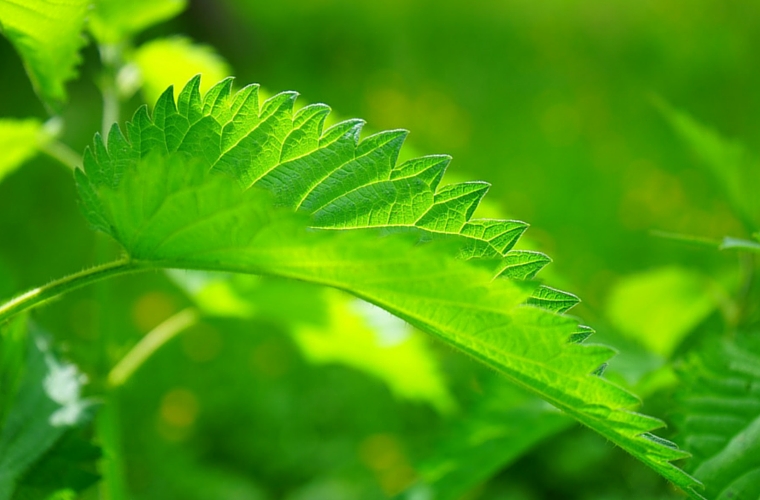Image courtesy Pixabay/Hans
Do you have a favorite herbal tea?
If you’ve been following my adventures, you know I absolutely love Tulsi.
But today, I want to share another nutrient-rich favorite with you.
This plant is known for its strong protective nature.
According to myths and folklore, if you carry it in your pocket, it will keep you safe and will give you courage.
Some stories suggest it can enhance fertility in men, and can bring down your fever. To do this, someone just needs to think about you as they pull the plant out by its’ root.
Even Hans Christian Andersen’s princess from his fairy-tale “The Wild Swans” created coats made of this plant to remove the spell placed on her brothers.
Have you figured out what plant I am talking about?
(I doubt it – I wouldn’t be able to tell you what it is just by the folkloric description.)
I am talking about Nettles and the Latin name of this plant is Urtica dioica.
It is also often called Stinging Nettles. And there is a clear reason for that.
When you find a patch of nettles, if you are not careful and respectful, you’ll be covered in blisters produced by formic acid that comes from nettle leaves.
As you probably noticed the plant’s Latin name Urtica has the same root as the word urticaria (or skin rash, hives.)
After reading about these potential problems, you might be wondering what’s so amazing about it? What makes it a favorite?
I think the simplest answer, Nettle is one of the most nutritious greens you’ll find out there.
Drinking Nettle tea provides you with tons of minerals and vitamins – calcium, potassium, vitamin C, vitamin K, flavonoids, carotenoids, and much more. I often think of a cup of Nettle tea as my multivitamin in a cup.
There are several areas of research associated with Nettles that are worth mentioning.
1. Arthritis
Scientists are exploring the use of the plant for arthritis. A product containing fish oil, Nettles, zinc and Vitamin E showed some promise in a study of patients with osteoarthritis. It is interesting to see that even Nettle stinging (similarly to what’s done traditionally in some cultures) has been evaluated. And even the use of a topical cream made with Nettles has been described.
2. Benign Prostatic Hyperplasia (BPH)
Even based on mythology, it appears that Nettles might have some effect on male urinary system. Nettle research on BPH suggests benefits in treatment. The majority of reports discuss the use of Nettle root a safe therapeutic option for mild to moderate symptoms.
3. Diabetes
Nettle seems to improve blood sugar control in patients with diabetes needing insulin. It also appears that Nettle can work as an antioxidant in these patients potentially helping to prevent cardiovascular disease. Nettle extract also increases insulin sensitivity and decreases inflammation in patients with diabetes.
Nettles can be used for the treatment of allergic rhinitis. Based on animal research findings, this plant can also protect your stomach, liver and nervous system, and could even lower cholesterol. Three main part of Nettles that are used medicinally include leaves, roots and seeds.
The roots are typically added to prostate formulas for men. The seeds are known for their ability to protect kidneys. The leaves have the widest applicability – from their use in patient with anemia, to those who have varicose veins.
I very much like that Nettle tastes “green”. I usually feel “healthier” consuming all that green goodness. What I like even more is that you can effectively mask the taste by adding other herbs. One of my favorite mixtures contains hibiscus for the sour taste and some cinnamon for its sweetness, making the entire mixture taste like a cranberry cocktail.
Additionally, there are many ways to cook with Nettle – from adding the herb to your soup or stir fry (Nettles lose their sting when cooked). You can find tons of great recipes . The best tip I learned is to treat nettles like cooked spinach.
Questions: What are your favorite spinach recipes? Could you see yourself substituting spinach with Nettles to get these amazing additional nutrients?


